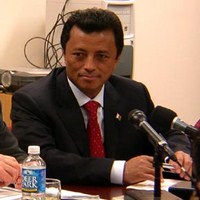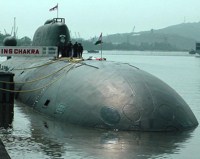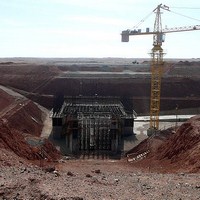In July, the EU caved to pressure from the U.S. and Israel and added Hezbollah’s “military wing” to its blacklist of terrorist entities subject to financial sanctions. The U.S. and Israel applauded the move; Hezbollah leader Hassan Nasrallah shrugged it off as meaningless. Nasrallah is right: It is meaningless. The first reason it’s meaningless, as noted elsewhere, is that Hezbollah is a fully integrated political and military organization, and there is no real way to enforce sanctions against the “military wing” by itself. The second and more important reason is that, as a policy tool, terrorist blacklists in general are […]
Latest Archive
Free Newsletter

As the International Security Assistance Force (ISAF) shifts to a training and advisory role in Afghanistan in preparation for the planned end of its mission in 2014, the Afghan air force has had difficulty replacing the air support capabilities previously supplied by international forces. In an email interview, Gary Owen, the pen name of an analyst and development worker in Afghanistan who has written on the readiness of the Afghan air force, explained the force’s history and current capabilities. WPR: When was the last time Afghanistan had a functioning air force? Gary Owen: The history of the Afghan air force […]

Characterized by false dawns, blind alleys and abrupt turnarounds, the tortuous mediation of Madagascar’s constitutional crisis has once more stalled. The Special Electoral Court’s ruling to allow the current unelected transition president, Andry Rajoelina, to stand in the presidential election, along with Lalao Ravalomanana—the wife of ousted President Marc Ravalomanana—and another former president, Didier Ratsiraka, remains a sticking point for most of the international community, which currently refuses to recognize a presidential poll should any of these three win. Logistically, the election cannot now take place on Aug. 23 as planned, and only the most optimistic stakeholders envision completing two […]
Seven years ago, the dominant Democratic narrative explaining the decline in America’s standing in the world was due largely to Republican incompetence in foreign policy matters, with the Iraq War presented as Exhibit A. If Democrats returned to power, it was intimated, the United States would regain its international position. American allies, starting with the Europeans, would fall in line to support U.S. security initiatives; multilateral institutions would work because Democrats would demonstrate their superior negotiating techniques; and when it came to dealing with “difficult” regimes like China or Russia, Democrats would show the “cowboys” in the George W. Bush […]
Prime Minister Recep Tayyip Erdogan and his ruling Justice and Development Party (AKP) moved to rein in the Turkish military last week by blocking the promotion of a high-profile commander, Gen. Bekir Kalyoncu, and instead forcing the general’s retirement. Turkish media described the move as being tied to what is called the Ergenekon case, in which military officials are accused of trying to overthrow the government. Kalyoncu’s forced retirement, combined with the life sentence handed to former military chief Gen. Ilker Basbug in the Ergenekon case, underscored the shifting state of civil-military relations in Turkey, which is marked by a […]

Five years ago, Georgian forces crossed into the Moscow-backed separatist territory of South Ossetia, seeking to clamp down on attacks against ethnic Georgian villages along the de facto boundaries and re-establish authority over the breakaway region. Russia’s response was swift: Its troops poured into South Ossetia, pushing out Georgia’s overmatched military. When the guns were finally silenced after the short but fierce war, hundreds had been killed or wounded and tens of thousands of civilians were displaced. Although the global community refused to follow Moscow’s lead in recognizing the independence of South Ossetia and Abkhazia, Georgia’s other separatist province, the […]

The tally of Arab Spring winners and losers keeps changing in the Middle East, and it’s difficult to predict how the list will look when the revolutionary fervor dies down. There is one player, however, whose fortunes have eroded so dramatically as to bring into question whether it will survive as currently constituted. Hamas, the Islamist militant branch of the Muslim Brotherhood that has governed the Palestinian Gaza Strip since it took control by force in 2007, suddenly finds itself against the ropes, struggling to remain viable and showing its increasing difficulties through actions that reek of desperation. Hamas now […]

Joe Biden’s recent visit to New Delhi and Mumbai—the first trip by an American vice president to India in 30 years—occasioned no shortage of handwringing over the state of the U.S.-India relationship. Commentators on both sides point to stalled economic reforms and slowing growth in India combined with uncertainty over how India fits into Washington’s vaunted “rebalance” to Asia. And from one perspective, the glass can indeed appear half empty. Yet the U.S.-India relationship enjoys bipartisan support in both countries, and the underlying strategic logic remains sound. Building on this foundation will require able stewardship in both Washington and New […]

Since the birth of the transnational Salafi jihadist movement in Afghanistan during the 1980s, its leaders have refined a strategy based on “swarming.” Jihadists tied to or inspired by al-Qaida look for a conflict where locals are fighting a repressive or ineffective regime, preferably one seen as an outside, impious force. Jihadists then flock to the conflict and join local fighters, cast the clash in religious terms, push the locals toward the Salafist position associated with al-Qaida and, if possible, take over the resistance. Their goal is creation of an independent “emirate” to inspire other jihadists and, eventually, re-create the […]

Last month, India agreed to help Myanmar build offshore patrol vessels in an effort to improve ties. In an email interview, Abhijit Singh, a research fellow at New Delhi’s National Maritime Foundation tracking political and strategic developments in West and South Asia, explained India’s strategic relationships in Southeast Asia. WPR: Who are India’s main security partners in Southeast Asia and how expansive are these ties? Abhijit Singh: India’s principal security partners in Southeast Asia are Singapore, Thailand, Indonesia and Vietnam. Security cooperation with these countries is mostly limited to defense dialogues, low-level military exchanges, modest military aid and training, and […]

For mineral-rich countries, large-scale extractive industry projects are a double-edged sword. On one hand, mining royalties and taxes provide funds that can be invested in infrastructure and social services. Mining projects can also create local jobs and spur demand for locally produced goods and services, supporting livelihoods and spurring economic growth. On the other hand, mining revenues can be—and there is plenty of evidence that they routinely are—spirited or frittered away, leaving little to show by way of long-term productive investment or better living standards. Moreover, mining booms undermine growth in other industries by skewing labor demand and swelling the […]

Last week, Yemeni President Abed Rabbo Mansour Hadi visited the White House for talks with U.S. President Barack Obama regarding counterterrorism and Yemen’s democratic transition. In an email interview, Danya Greenfield, deputy director of the Rafik Hariri Center for the Middle East and head of the Yemen Policy Initiative at the Atlantic Council, explained the recent history and current state of the U.S.-Yemen relationship. WPR: How does the U.S. relationship with President Abed Rabbo Mansour Hadi compare with its relationship with former President Ali Abdullah Saleh? Danya Greenfield: The United States’ working relationship with Hadi is far more positive, transparent […]
Many countries have welcomed the election of Iran’s newly inaugurated president, Hasan Rouhani, while remaining cautious about the prospects for major shifts in Iranian policy as a result of his victory. But few countries have responded as erratically as Russia. Recent weeks have seen media reports that President Vladimir Putin would visit Tehran and that Moscow would sell Iran advanced weaponry—only to be retracted days later. Russia’s interests regarding Iran are complex and often conflicting, explaining Russian policymakers’ seemingly erratic behavior. Moscow has six core goals regarding Iran: supporting nonproliferation, preventing war or regime change, maintaining regional security, minimizing sanctions, […]

They have been overlooked by the international media, whose gaze has been fixed on Tahrir Square in Cairo and Taksim Square in Istanbul. But Bulgaria’s ongoing anti-government protests, which entered their 50th day last week, are indicative of a broader disillusionment with the political and economic elite seen all over Southeastern Europe. The concept of a state “captured” by business interests may resonate well beyond Bulgaria’s borders. The question is whether real change to how politics and the economy are run will come about. The demonstrations are Bulgaria’s biggest since 1997, when economic crisis brought citizens to the street and […]

The small island-state of Timor-Leste exemplifies the challenge of resource-based development for a poor country well-endowed with a valuable natural resource. Timor-Leste, which gained its independence in 2002, has accumulated $13 billion in its petroleum fund in less than a decade. Some of the largest multinational oil companies are operating in the country, and the revenues continue to flow. And yet, while Timor-Leste has seen very notable improvements in its development indicators in the past few years, it continues to face a massive challenge of converting financial wealth into economic development. There are also heated debates about how to spend […]

High-value natural resources have historically been associated with dozens of armed conflicts, millions of deaths and the collapse of several peace processes, and both case studies and statistical evidence confirm that such resources play a role in sparking and fueling armed civil conflict. According to recent research, between 1970 and 2008 the portion of armed civil conflicts that were in some way related to high-value natural resources ranged from 30-60 percent each year. Why is peace so difficult to achieve and sustain in the presence of these resources? High-value natural resources can directly increase the risk of conflict in a […]

Zimbabwean President Robert Mugabe will serve a seventh term in office, having reportedly won 61 percent of the vote in Zimbabwe’s general elections last week, compared to 34 percent of the vote for Prime Minister Morgan Tsvangirai, despite charges of electoral fraud. South African President Jacob Zuma extended his congratulations to Mugabe, while the United States and the United Kingdom expressed concerns about the integrity of the vote, with U.S. Secretary of State John Kerry saying the outcome failed to “represent a credible expression of the people.” In an email interview with Trend Lines, James Hamill, a lecturer in the […]
